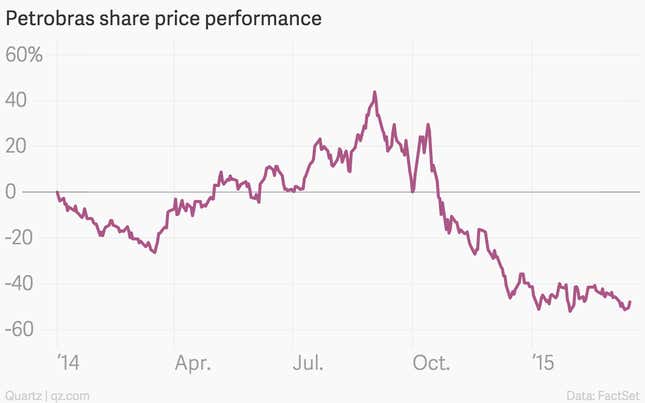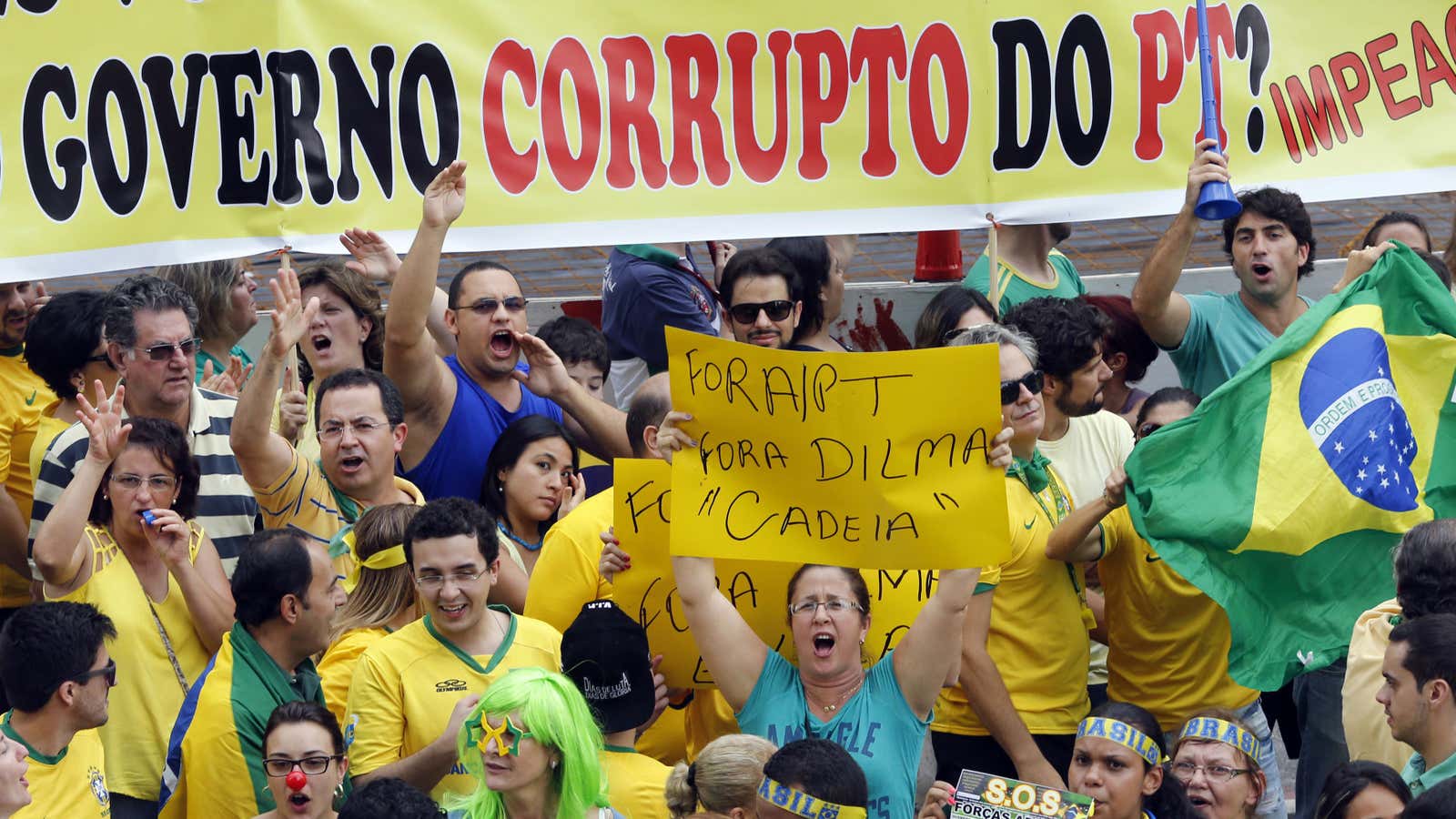On March 15, approximately 1 million Brazilians flooded the streets of cities all over the country, calling for the impeachment of president Dilma Rousseff, who was re-elected by a slim margin for a second term in late October. The catalyst for the demonstrations was the enormous corruption scandal at the government-controlled oil giant, Petrobras, where Rousseff was chairwoman from 2003 to 2010.
Yesterday, the scandal finally reached a member of Rousseff’s inner circle: prosecutors filed charges against João Vaccari, treasurer of Rousseff’s Workers’ Party. (His lawyers have previously denied any wrong-doing on his part.)
Company executives have been jailed and powerful politicians across party lines—including the speakers of both houses of congress—have been questioned about the money-laundering and bribery scheme. According to prosecutors, construction and engineering firms paid some $800 million to politically-appointed Petrobras executives in exchange for lucrative contracts with the company, benefiting both the executives and the campaign coffers of the Workers’ Party (PT), and others.

Since the criminal investigation opened a year ago, Petrobras shares have fallen by around 30%, a drop worth nearly 50 billion reais ($15.3 billion) in market value. In February, Moody’s downgraded the company’s bonds to junk status.
Rousseff has maintained that she knew nothing of the scheme, and said at a press conference on March 16 that “whoever is responsible will pay for what he did.”
The denial will not satisfy her critics, especially with her party’s treasurer now among those charged. Of the 34 sitting politicians tied up in the scandal, “Vaccari may be the more dangerous for Rousseff,” says Joao Augusto de Castro Neves, a political analyst with the Eurasia consultancy. “He is the one who handled the money.”
Prosecutors say that the treasurer solicited donations from corrupt engineering executives. Pedro Barusco, a former Petrobras executive who named Vaccari in a plea bargain testimony, said Rousseff’s Workers’ Party had received some $200 million from Petrobras contracts.
“Vaccari knew that the payments were actually bribes,” Deltan Dallagnol, one of the prosecutors in the case, told reporters. According to Reuters, the Workers’ Party says all its donations were legal.
With the corruption scandal coming on top of climbing unemployment, a water shortage in Brazil’s most populous city, and a bleak economic forecast, it’s no wonder Rousseff’s approval ratings are tanking (link in Portuguese). She may not be impeachable yet, but she certainly has dark days ahead.
“This will force Rousseff to take a stand,” says de Castro Neves. “She’ll try to be ambivalent for as long as she can… It’s going to become harder and harder to maintain this ambiguity.”
